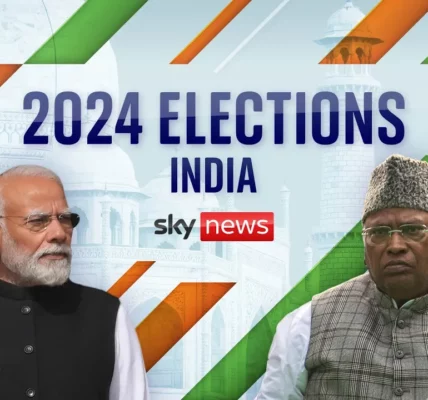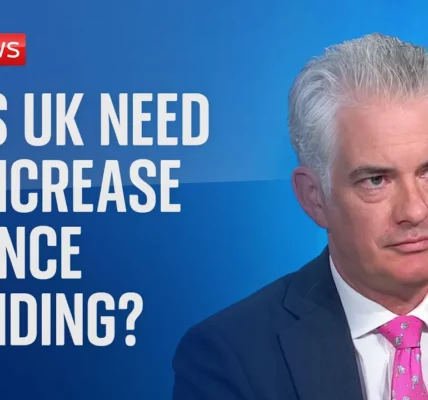South Africa’s Elections: 30 Years After Apartheid

In today’s article, we delve into the significant South African elections taking place three decades after apartheid’s end. As we explore the political landscape, economic struggles, and societal changes, we reflect on the legacy of Nelson Mandela and the current challenges that the nation faces.
Introduction
The South African elections are a momentous occasion, particularly as they occur 30 years after the historic end of apartheid. This pivotal moment in history is marked by a profound sense of optimism that once radiated through the nation. However, as evidenced by the current socio-economic landscape, many South Africans are grappling with unfulfilled dreams and a growing discontent regarding their political representation and quality of life. This article will unpack the intricacies of the elections, the legacy of Nelson Mandela, and the sentiments of the younger generation who did not experience the apartheid era firsthand.
The Historical Context of the Elections
In 1994, South Africa held its first democratic elections, allowing black citizens to vote for the first time. This monumental change was celebrated worldwide and signified a new era of hope and equality. Nelson Mandela, who emerged as a symbol of resilience and freedom, envisioned a “Rainbow Nation” where all races could coexist peacefully. However, evaluating the political landscape today reveals a stark contrast to Mandela’s aspirations.
The Dream of a Rainbow Nation
- Unity among diverse racial groups
- Economic empowerment for all citizens
- Access to basic human rights, including education and healthcare
These ideals, though noble, appear to have faltered in the face of corruption, economic inequality, and chronic unemployment that many South Africans continue to face.
The Current Political Landscape
The African National Congress (ANC), which has dominated South African politics since the end of apartheid, is now facing significant challenges. Polls suggest that the ANC’s majority could be at risk, marking a potential shift in the political dynamics of the country.
Discontent Among Voters
Many citizens express a sense of betrayal regarding the ANC’s inability to fulfill its promises:
- High unemployment rates
- Lack of basic services, such as running water and sanitation
- Increased crime rates and safety concerns
Younger Generations and Political Cynicism
For those born after apartheid, the ANC’s narrative appears distant and irrelevant. This generational divide is evident in the attitudes of younger voters who are increasingly disenchanted with the political status quo:
- Many see the ANC as a party of the past, failing to address current needs.
- Younger voters are seeking alternatives, often gravitating towards radical parties like the Economic Freedom Fighters.
- There is a growing sentiment that democracy has not translated into economic opportunities for black South Africans.
Socio-Economic Challenges in South Africa
Despite the progress made since 1994, South Africa remains one of the most unequal countries in the world. The gap between the wealthy and the poor continues to widen, with many citizens struggling to meet their basic needs.
Economic Inequality
Economic disparities are evident in urban areas, where affluent neighborhoods exist alongside impoverished townships:
- In cities like Cape Town, luxury homes contrast sharply with informal settlements.
- Unemployment levels remain high, particularly among youth.
- The social relief grants provided are inadequate for families to thrive.
Crime and Safety Concerns
As crime rates soar, the sense of safety for many South Africans diminishes:
- Increased incidents of violent crime, particularly in urban areas.
- Citizens express a desire for a government that prioritizes their safety and well-being.
Foreign Policy and Its Implications
The ANC’s foreign policy has been shaped by its historical alignment with other BRICS nations, including Russia and China. The outcome of the elections could significantly influence South Africa’s position in global affairs.
Alignment with BRICS
South Africa’s engagement with BRICS reflects its commitment to challenging Western dominance:
- Strengthening ties with emerging economies.
- Promoting international cooperation on issues like climate change and economic development.
Conclusion
The upcoming elections in South Africa represent a crossroads for the nation, reflecting both the hope and disillusionment experienced by its citizens over the past 30 years. As South Africans head to the polls, the outcomes will not only determine the political landscape but also signal the public’s sentiment toward the legacy of Nelson Mandela and the dream of a Rainbow Nation. It is crucial for voters to recognize their power and the importance of active participation in shaping their future. As these elections unfold, it remains to be seen whether South Africa will take steps toward realizing the aspirations set forth three decades ago.
If you are interested in following the results of the South African elections, stay tuned to our website for updates and analyses as they become available.
“`




